第157章
In this review of the Constitution of the House of Representatives, I have passed over the circumstances of economy, which, in the present state of affairs, might have had some effect in lessening the temporary number of representatives, and a disregard of which would probably have been as rich a theme of declamation against the Constitution as has been shown by the smallness of the number proposed. I omit also any remarks on the difficulty which might be found, under present circumstances, in engaging in the federal service a large number of such characters as the people will probably elect. One observation, however, I must be permitted to add on this subject as claiming, in my judgment, a very serious attention. It is, that in all legislative assemblies the greater the number composing them may be, the fewer will be the men who will in fact direct their proceedings. In the first place, the more numerous an assembly may be, of whatever characters composed, the greater is known to be the ascendency of passion over reason. In the next place, the larger the number, the greater will be the proportion of members of limited information and of weak capacities. Now, it is precisely on characters of this description that the eloquence and address of the few are known to act with all their force. In the ancient republics, where the whole body of the people assembled in person, a single orator, or an artful statesman, was generally seen to rule with as complete a sway as if a sceptre had been placed in his single hand. On the same principle, the more multitudinous a representative assembly may be rendered, the more it will partake of the infirmities incident to collective meetings of the people. Ignorance will be the dupe of cunning, and passion the slave of sophistry and declamation. The people can never err more than in supposing that by multiplying their representatives beyond a certain limit, they strengthen the barrier against the government of a few.
Experience will forever admonish them that, on the contrary, AFTER SECURING A SUFFICIENT NUMBER FOR THE PURPOSES OF SAFETY, OF LOCAL INFORMATION, AND OF DIFFUSIVE SYMPATHY WITH THE WHOLE SOCIETY, they will counteract their own views by every addition to their representatives.
The countenance of the government may become more democratic, but the soul that animates it will be more oligarchic. The machine will be enlarged, but the fewer, and often the more secret, will be the springs by which its motions are directed.
As connected with the objection against the number of representatives, may properly be here noticed, that which has been suggested against the number made competent for legislative business. It has been said that more than a majority ought to have been required for a quorum; and in particular cases, if not in all, more than a majority of a quorum for a decision. That some advantages might have resulted from such a precaution, cannot be denied. It might have been an additional shield to some particular interests, and another obstacle generally to hasty and partial measures. But these considerations are outweighed by the inconveniences in the opposite scale. In all cases where justice or the general good might require new laws to be passed, or active measures to be pursued, the fundamental principle of free government would be reversed. It would be no longer the majority that would rule: the power would be transferred to the minority. Were the defensive privilege limited to particular cases, an interested minority might take advantage of it to screen themselves from equitable sacrifices to the general weal, or, in particular emergencies, to extort unreasonable indulgences.
Lastly, it would facilitate and foster the baneful practice of secessions; a practice which has shown itself even in States where a majority only is required; a practice subversive of all the principles of order and regular government; a practice which leads more directly to public convulsions, and the ruin of popular governments, than any other which has yet been displayed among us.
PUBLIUS
____